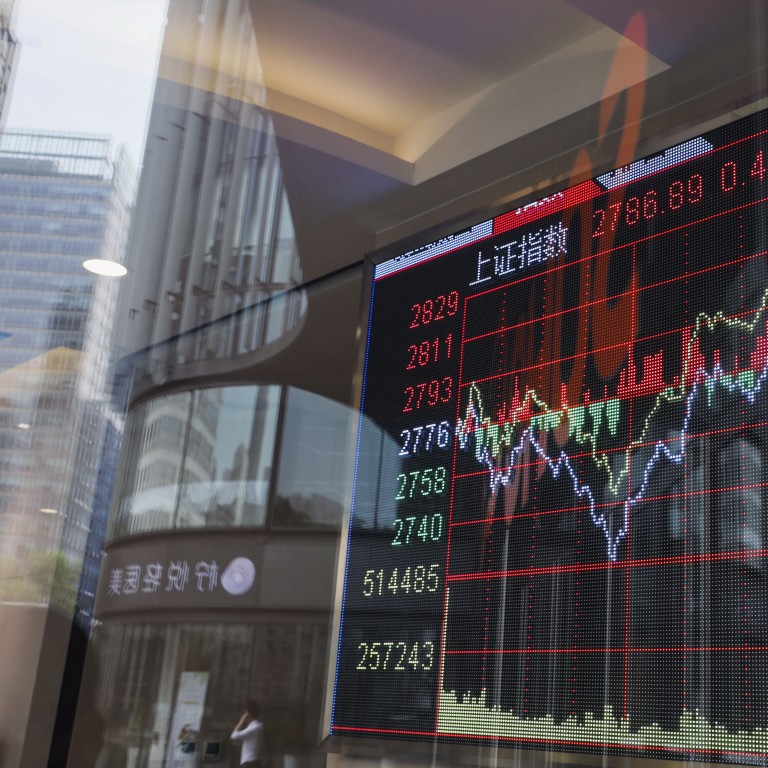
Foreign investors piling into mainland China stocks – and that’s expected to only grow
- After taking a pounding last year, China shares look appealing
- Overseas appetite would get boost by possible expansion of A-shares in MSCI benchmarks
Foreign investors are piling into mainland China’s stock markets, attracted by good valuations after A-shares took a pounding last year.
The overseas appetite is expected to only grow if the global index compiler MSCI enlarges A share inclusion in its benchmarks. It will announce its decision by the end of the month.
“Last year, the China A[share] market was the worst performing market in the region,” said Raymond Chan, the chief investment officer for equity, Asia-Pacific, for Allianz Global Investors. “We continue to see interest from foreign investors to put money in the China A-market despite the market being down so much [last year]. I think this is the key trend here. There will be flows of money that will continue to come to the China-A market.”
The Shanghai Composite Index shed 25 per cent last year, the second-worst annual performance in history. Financial deleveraging by Beijing led to slowing growth, and China also was rocked by the escalating trade war with the US. Only 2008 – during the global financial crisis – had a bigger decline, at 65 per cent.
The average price-to-earnings ratio by the mainland’s 300 largest stocks included in the CSI 300 Index tumbled to a level slightly above 10 at the end of 2018, making the valuations attractive to global institutions.
In January, net inflow of northbound trading was valued at 61 billion yuan (US$9.2 billion), hitting an all-time high, the latest sign that an influx of fresh funds has gravitated to the A-share market.
Northbound trading refers to buying and selling of mainland-listed shares from Hong Kong through the stock connect programmes that link the mainland and Hong Kong exchanges.
The net fund inflows through the stock link last month more than doubled the 25 billion yuan capital influx in December.
The Shanghai benchmark advanced 3.6 per cent to 2,584.57 in January before it gained another 6.6 per cent to close at 2,754.36 on Monday.
China’s small companies were in the spotlight when they chopped their earnings estimates in January, with the ChiNext gauge of start-ups falling close to a four-year low in the month. A barrage of them revised downward their previous profit projections for 2018, as they had to write down the values of goodwill after the acquired units failed to deliver on promised earnings. Traders have bought back into smaller companies after the sell-off, betting that the worst was already behind them. The recent data on record new loans in January further buoyed up small-caps, which tend to perform better in adequate liquidity.
Preliminary announcements showed that 390 companies listed on the mainland are set to report combined losses of 330 billion yuan for 2018.
That would put the total losses for the country’s listed firms on track to be three times greater than a year earlier.
“Some of the bad factors have been priced in” said Lu Jie, head of China research with international asset manager Robeco. “The outlook for A-share market in 2019 appears to be bullish.”
The foreign institutions’ buying interest is based on studies of fundamentals and valuations.
By the end of February, MSCI will decide whether to increase A shares’ inclusion factor from the existing 5 per cent to 20 per cent in its emerging markets benchmarks.
Foreign investors in aggregate own around US$168 billion worth of A-share equities, or 2.6 per cent of the total market capitalisation on the mainland, according to Morgan Stanley.
It estimated in a research report last week that annual foreign A-share fund inflows will normalise at around US$100 billion to US$220 billion each year over the next 10 years as MSCI continues to increase A shares’ weighting in the global benchmarks.
Additional reporting by Zhang Shidong


